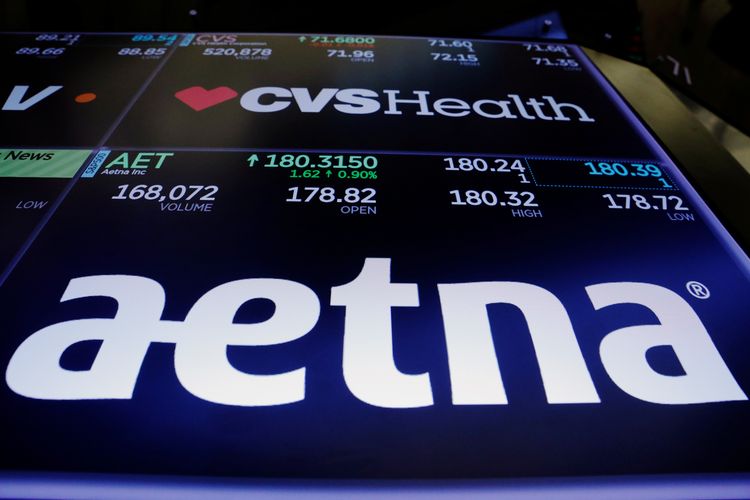Strong investor demand for CVS Health’s US$40bn M&A bond gave a shot of confidence to the US high-grade bond market Tuesday after a recent bout of volatility in the usually rock solid asset class.
Order books of more than US$120bn for the nine-tranche trade - the third largest US dollar high-grade corporate deal on record, according to IFR data - brought some relief after new issues have traded wider in secondary of late.
“This is the deal of 2018,” Matt Brill, senior portfolio manager at Invesco, told IFR. “The market needs this to do well.”
The CVS bond, which will help finance the US$69bn acquisition of health insurer Aetna, had been hailed as a crucial test for the market that has provided some of the largest corporations with cheap financing for several consecutive years.
CVS had been eyeing other currencies as well due to the large amount of debt it needed to raise.
But hefty demand for the US dollar offering helped alleviate concerns about investor demand that has tapered off in recent weeks, according to Lipper data.
The asset class, for example, last month saw its biggest weekly outflow since November 2016. Analysts have also warned about wilting demand from foreign investors as hedging costs have risen.
“The market at this juncture still has the capacity to finance large scale transactions,” said a banker not directly involved in the CVS deal.
BUYSIDE BARGAINING
Some investors, however, cautioned that other would-be borrowers may not find as welcome a reception.
Some, for example, gave CVS credit for the acquisition which will create one of the largest companies in the US by revenue and help cut costs. It could also help the firm resist Amazon’s entry into drug distribution.
“CVS has fundamentally changed its business through this acquisition,” Janelle Woodward, global co-head of income at BMO Global Asset Management, said.
Brill described the merged entity - the M&A deal is yet to close - as almost a conglomerate.
“It will have multiple sources of revenue, and will be an industry leader in multiple areas,” Brill said.
To win over investors, CVS also offered a steep discount on some of the tranches that include a special mandatory redemption clause.
That clause, offered on every tranche except the 30-year, requires CVS to buy the bonds back from investors at a price of 101 if the merger fails to close by September 3 next year.
Bond buyers hailed the discount as a break-through.
RECORD BOOKS
Still, the huge order book is one of the largest ever recorded in the corporate bond market, according to IFR data.
Mindful of the recent choppy backdrop, Bank of America Merrill Lynch, Barclays, Goldman Sachs and JP Morgan - active bookrunners on the CVS trade - closed books unusually early by 10:30am New York time, and launched it just after midday.
That strategy also allowed accounts whose orders weren’t filled to buy bonds in the secondary market on the same day of pricing, Brill said. The deal was trading tighter in the gray market on Tuesday afternoon after launch.nL2N1QO1KJ
Relatively generous initial price thoughts on the trade, comprising maturities ranging from two to 30 years, certainly helped turn heads on the buyside from the get go.
IFR calculated new issue concession of between 30bp-40bp across the deal at IPTs stage, based on where outstanding bonds from CVS were trading. The only exceptions were the two and three-year bonds, which began with NICs closer to 15bp-25bp.
But as order books swelled, and leads pulled in spreads, NICs were closer to 10bp-18bp on the longest tranches at launch, and 2bp-4bp on the two shortest dated offerings, IFR calculations show.
Only Verizon’s US$49bn bond from 2013, and Anheuser-Busch InBev’s US$46bn bond issue from 2016 have been larger than the CVS issue.
InBev, by comparison, paid new issue concessions ranging between negative 5bp and plus 20bp on its multi-tranche offering that helped finance its acquisition of SABMiller, according to IFR calculations.
The CVS deal, rated Baa1 by Moody’s and BBB by S&P, is due to price later on Tuesday.
